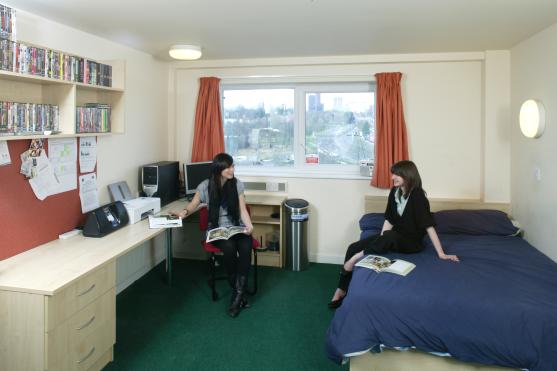
Australia is a top haven for international education, rivalled only by the US and UK. Every year, the continent welcomes a heavenly host of successful student visa applicants, all eager to acquire qualifications as only Australia could give.
Clearly real estate developers and institutional investors feel it their duty to rise up to the occasion. With no familyto turn to for shelter, international students are continually stoking demand for rental accommodations and student units in and around Australia’s universities and technical colleges.
Is this enough reason to invest in student shelter? There is more than enough reason to hope.
The Demand
From 2011 to 2013, university enrolments in Australia rose by nearly 6 percent. International enrolees were, as usual, a driving force behind this increase.
One in five students in the continent originates overseas; education is Australia’s fourth-largest export commodity. Almost 390,000 student visa holders were accounted for in Australia by February last year. By 2020, this number will have increased by 30 percent, the federal government projects—a humongous pool of potential tenants.
And yet, the number of beds purposely built by universities and the private sector for students falls short. In 2012, Jones Lang LaSalle estimated only about 42,500 purpose-built student bedsin the country. There is clearly a gaping deficit in student accommodation; keeping up translates to a vast investment opportunity.
Student Accommodation Investment Yields
As a rule of thumb, structural developments close to focal pointsin an urbanised area will always pull property hunters and investors. International education being one of Australia’s top exports, people are apt to converge near the country’s institutions. Adjacent accommodations consequently have an ability to achieve high yields. In fact, student accommodation in Australia is virtually an asset class in itself.

Apartment blocks purposely built for student accommodation are likely to give auspicious returns. A good entry point to the market would be acquiring a unit or two in one block or several units across different blocks. Unit prices are relatively low, ranging between $150,000 and $300,000, due to the typically small dimensions of the space.
Block operators charge rental prices according to location and amenities. Atypical room in Sydney, sans a private bathroom, would set a student back $370 per week. In Adelaide, its counterpart may be priced at just $250.
Investors usually collect the rental income monthly through a trust set apart on their behalf by the block’s management team, which also handles the marketing, security, inspection, and day-to-day choresof the building. For these, managers may charge investors as high as 9 percent in fees. Yields can easily offset such expenses though. A student unit in a managed block gives returns of 6 percent on average.
If you don’t want to play into private landlords, you always have an alternative in acquiringregular residential properties in university precincts and university towns. The trick to high yields is by renting the house out on a per-room basis.
About the subject of international students’ financial capacity, no need to fret: Enrolees are usually bankrolled by their parents. The bulk of international students in Australia hail from Asia, where increasingly affluent parents can afford to pay upfront for yearlyrental fees.
Takeaway
As real estate investors, you might be after long-term equity growth more than anything. If this is the case, it is reasonable to defer the investment until you can purchase a larger property with a chance at a future sale. (You can always convert existing property into student housing though, especially if the surrounding area sees a good amount of student hustle and bustle.)
If you’re after shorter-term income more than capital growth or resale value, then take advantage of the chronic undersupply of purpose-built accommodations for students. The crux of this alternative would be your choice of management. Weigh your options carefully in terms of management fee rates, as they can make or break your investment goals.
Investing in students unit requires a balanced evaluation of your financing arrangements. If you need a loan, increase the chance of an approval by preparing collateral akin to one you would have for a regular house. A good mortgage broker can put you in touch with receptive lenders.
Whether you’re purchasing a house for rental purposes, acquiring a unit in a purpose-built block, or actually developing one, see if you’re fundamentally ready to house students. This demographic is an inherently raucous crowd,with a penchant for parties and a nascent rental history. Factor this assumption into your investment decision and consult your trusted real estate agency.







